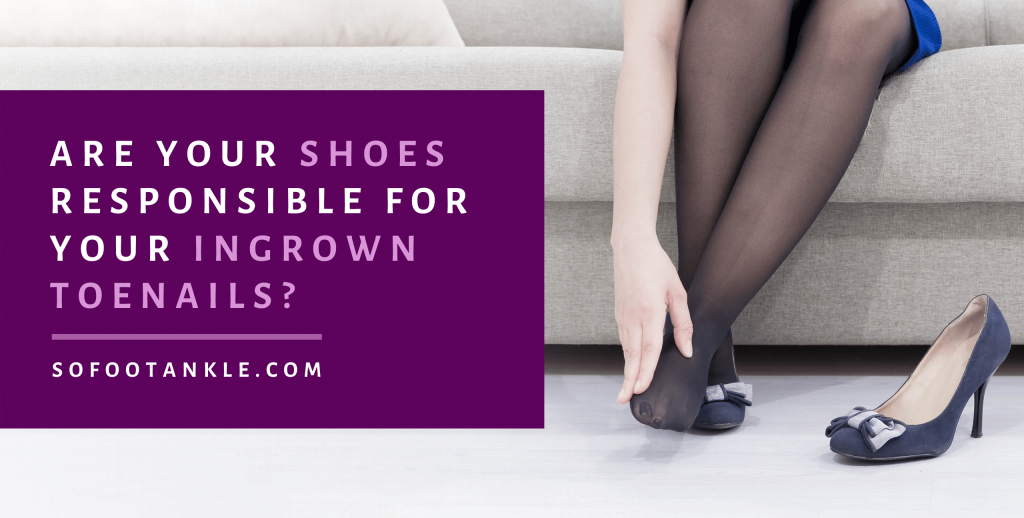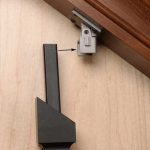Discover The Link: Can Tight Shoes Cause Ingrown Toenails? Find Out Now And Take Action!
Can Tight Shoes Cause Ingrown Toenails?
Introduction
Hello, Shoes Lovers! Today, we will discuss a common issue that many of us have faced at some point – ingrown toenails. Specifically, we will explore whether tight shoes can cause ingrown toenails. We all know how uncomfortable and painful ingrown toenails can be, so it’s essential to understand the potential causes. In this article, we will delve into the details, explore the pros and cons, answer frequently asked questions, and provide you with a comprehensive understanding of this topic. So, let’s get started!
1 Picture Gallery: Discover The Link: Can Tight Shoes Cause Ingrown Toenails? Find Out Now And Take Action!

What Are Ingrown Toenails?
Ingrown toenails occur when the edge or corner of the toenail grows into the surrounding skin, causing pain, swelling, and sometimes infection. It is a common condition that can affect anyone, but certain factors can increase the risk of developing ingrown toenails. One such factor is wearing tight shoes. Let’s take a closer look at how tight shoes can contribute to the development of ingrown toenails.
Who is at Risk?

Image Source: fosterwebmarketing.com
Anyone can develop ingrown toenails, but certain individuals are more prone to this condition. People who regularly wear tight shoes or high heels are at a higher risk due to the constant pressure and friction on the toes. Additionally, individuals with naturally curved or thick toenails, poor foot hygiene, or a history of ingrown toenails are also more susceptible. If you fall into any of these categories, it’s crucial to pay attention to your footwear choices.
When Do Tight Shoes Cause Ingrown Toenails?
Tight shoes can cause ingrown toenails when the pressure exerted on the toes leads to the nail growing into the surrounding skin. This can happen gradually over time, with the constant friction and squeezing of the toes against the shoe. Furthermore, ill-fitting shoes can also lead to ingrown toenails if they compress the toes and force the nails to grow abnormally. It’s essential to be mindful of this potential risk when selecting your footwear.
Where Can Tight Shoes Cause Ingrown Toenails?
Tight shoes can cause ingrown toenails anywhere on the foot where there is pressure and friction. However, the most common location is the big toe. The pressure from tightly fitting shoes can push the nail into the skin on the sides or at the top of the toe, leading to discomfort and potential infection. This is why it’s crucial to ensure your shoes fit properly and allow for enough space for your toes to move freely.
Why Do Tight Shoes Cause Ingrown Toenails?
Tight shoes cause ingrown toenails because they put excessive pressure on the toes, leading to the nail growing into the surrounding skin. When the toes are constricted and squeezed together, the nail has nowhere to grow but into the flesh. Additionally, tight shoes can also cause the nails to become distorted and grow abnormally, further increasing the likelihood of ingrown toenails. It’s crucial to prioritize comfort and proper fit when choosing your shoes.
How to Prevent Ingrown Toenails from Tight Shoes?
Preventing ingrown toenails caused by tight shoes starts with choosing the right footwear. Opt for shoes that provide enough room for your toes to move freely and avoid those that squeeze or compress your feet. Additionally, maintaining proper foot hygiene, such as regularly trimming your toenails straight across and keeping them at a moderate length, can also help prevent ingrown toenails. If you already have an ingrown toenail, it’s best to seek professional medical advice for proper treatment.
Pros and Cons of Wearing Tight Shoes
Like any other topic, wearing tight shoes has its pros and cons. Let’s take a look at both sides:
Pros of Wearing Tight Shoes
1. Fashionable and stylish appearance.
2. Adds height and enhances posture.
3. Provides a snug fit and support for the feet.
4. Can improve the overall aesthetic of an outfit.
5. Suitable for certain activities that require stability, such as dancing or sports.
Cons of Wearing Tight Shoes
1. Increased risk of developing ingrown toenails.
2. Can lead to foot pain and discomfort.
3. May cause bunions or other foot deformities over time.
4. Restricted movement and limited flexibility of the toes.
5. Potential for long-term foot and ankle issues if worn excessively.
Frequently Asked Questions (FAQs)
Q1: Can wearing tight shoes cause permanent damage to the toes?
A1: Yes, consistently wearing tight shoes can lead to permanent foot deformities, such as bunions or hammertoes, which may require medical intervention.
Q2: Are there any home remedies to treat ingrown toenails caused by tight shoes?
A2: While home remedies may provide temporary relief, it’s best to consult a healthcare professional for proper diagnosis and treatment of ingrown toenails.
Q3: Can ingrown toenails caused by tight shoes be prevented without changing footwear?
A3: It is challenging to prevent ingrown toenails without addressing the root cause, which is often tight shoes. Changing footwear is the best solution to prevent recurring issues.
Q4: Are there any specific shoe brands that are recommended for individuals prone to ingrown toenails?
A4: While specific shoe brands may offer more comfortable options, it is essential to focus on the fit and design rather than a particular brand.
Q5: Can ingrown toenails caused by tight shoes be resolved without medical intervention?
A5: In some cases, mild ingrown toenails may resolve on their own with proper foot care and changes in footwear. However, severe cases often require medical intervention.
Conclusion
In conclusion, tight shoes can indeed cause ingrown toenails, leading to pain, discomfort, and potential infection. It is crucial to prioritize comfort and proper fit when selecting footwear to prevent this issue. If you experience recurring or severe ingrown toenails, it’s best to consult a healthcare professional for appropriate diagnosis and treatment. Remember, taking care of your feet is essential for overall foot health and well-being. So, choose your shoes wisely and give your toes the space they deserve!
Final Remarks
Disclaimer: The information provided in this article is for educational purposes only and should not replace professional medical advice. If you have specific concerns or questions about your foot health, please consult a qualified healthcare professional.
This post topic: Shoes



